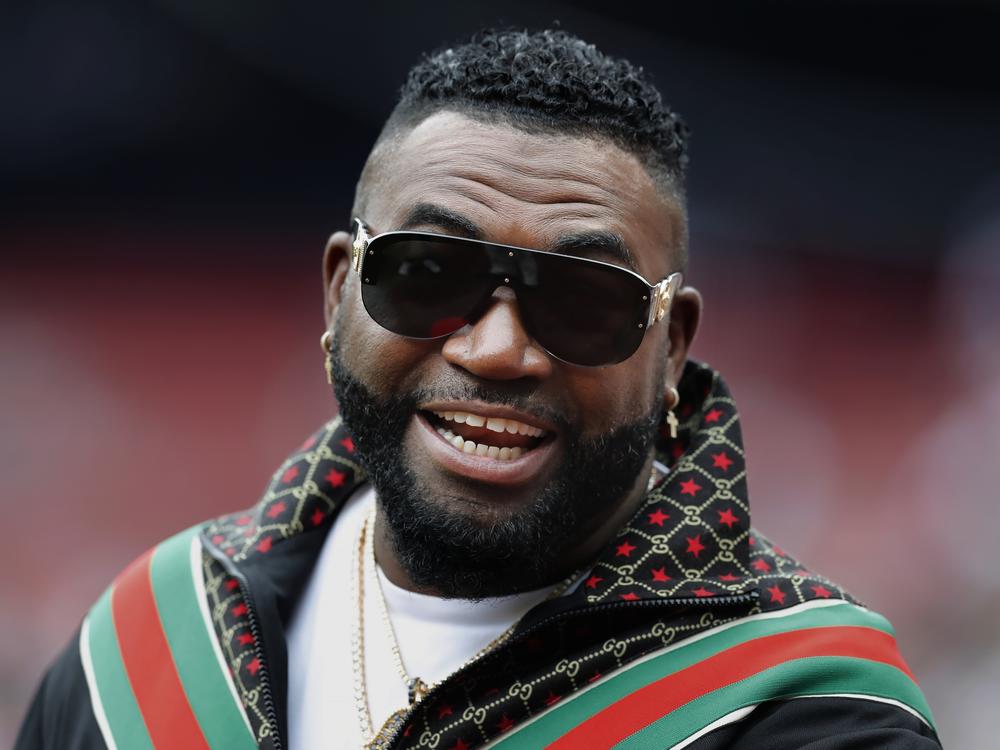Section Branding
Header Content
'Big Papi' makes it into the Baseball Hall of Fame as Bonds and Clemens get shut out
Primary Content
Boston Red Sox legend David "Big Papi" Ortiz was elected to the Baseball Hall of Fame on Tuesday as some baseball writers were apparently still holding a grudge against some of the greatest stars of the game's Steroid Era.
Ortiz, from the Dominican Republic, was the only one — from a roster of 30 — to make it into the elite echelon of athletes. He appeared on 307 of the 394 ballots to put him over the required 75% threshold in his first year of consideration.
"When you are going through all of it ... there's not one player that can tell you they (were) thinking about the Hall of Fame," Oritz told WCVB-TV ahead of the vote. "That was me, and all of sudden they throw your name out there to be part of (an) elite group of players. To me, it's an honor. I can't even describe it."
Meanwhile, Barry Bonds, the sport's all-time home run king with 762, and Roger Clemens, who won a record seven Cy Young awards for the game's top pitchers, were shut out in their 10th and final year on the ballot, voted on by members of the Baseball Writers' Association of America.
Both are closely associated with the performance enhancing drugs scandals that plagued the sport during the early 2000s, and some members of the BBWA have been vocal about never voting them into the Hall of Fame.
Bonds appeared on 66% of the ballots and Clemens on 65.2%.
Ortiz, a designated hitter who hit 541 home runs during his two decades in the major leagues, helped the Red Sox win three World Series titles, including the championship run in 2004 that put an end to the team's 86-year title drought.
Like Bonds and Clemens, Ortiz reportedly tested positive for performance enhancing drugs in 2003. And like them, he never failed a drug test again. But the stigma doesn't appear to have stuck to him as it has with the others.
In 2017, Ortiz told NPR that he was angry when his name was leaked.
"This thing came out, and it was like my word against theirs. It made me very angry. You don't accuse people just like that, especially someone that is having the career that I was having plus the town that I was playing for and all that I had accomplished in my career," he said.
He later explained that he had been careless in buying and using supplements.
Clemens responded to news of the vote on Tuesday evening, saying he is glad to put this chapter behind him.
"My family and I put the [Hall of Fame] in the rear view mirror ten years ago," he wrote on Twitter. "I didn't play baseball to get into the HOF. I played to make a generational difference in the lives of my family."
He added that he focused "on winning championships while giving back to my community and the fans as well. It was my passion. I gave it all I had, the right way, for my family and for the fans who supported me. I am grateful for that support."
Curt Schilling, who also failed to make the cut in his final year on the ballot, congratulated his former teammate on his induction.
"Every year the conversation revolves around who didn't get in. Like all star voting, who got cheated," Schilling tweeted.
"I say it every year and especially this year, focus on who did get in. [David Ortiz] deserved a 1st ballot induction! Congratulations my friend you earned it!" he wrote.
Schilling, Bonds and Clemens could all still be voted into the Hall of Fame in December by the Today's Game Committee, which considers players who made their mark from 1988 to the present and didn't get more than 75% on the baseball writers' ballots.
Ortiz will be inducted on July 24 in a ceremony at the Hall of Fame in Cooperstown, N.Y.
Copyright 2022 NPR. To see more, visit https://www.npr.org.

